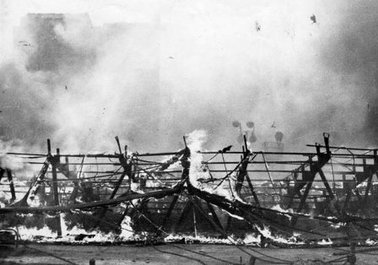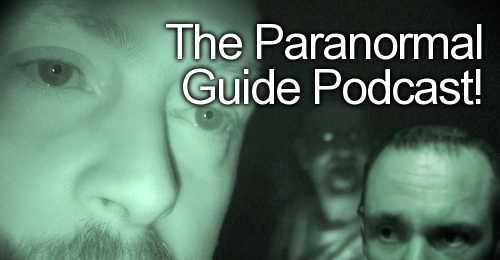
The women of Weinsberg, Germany, bring about a peaceful end to a siege. - Hundreds of people in Japan, mainly children, are hospitalised after watching an episode of Pokémon. - A packed circus tent is destroyed by fire in Niterói, Brazil, killing many.
December 16, 1997
 Still from the Pokemon episode that sent 685 people to hospital.
Still from the Pokemon episode that sent 685 people to hospital. Headaches, blurred vision, double vision, nausea, temporary blindness, convulsions and loss of consciousness were all reported. Many of this episodes 'victims' quickly recovered, the sensations lifting soon after the event, but for many it was a trip to the hospital where a number were diagnosed with photosensitive epilepsy.
TV Tokyo, who alone aired that episode, apologised to the Japanese people and an investigation was carried out. Pokemon videos were removed from retailers shelves and the shows producers were questioned at the request of the National Police Agency. Pokemon would be taken off the air for four months before returning in April, 1998, with parts of the shows opening changed and new rules for how long quickly flashing or strobing images can be left on screen.
The incident is often referred to as 'The Pokemon Shock'.
December 17, 1961
 The remains of the bigtop.
The remains of the bigtop. The crowd soon became aware of the impending disaster and as one they all made for the exits. People were trampled as the human tide hit the choke points, and as the flames grew behind the crowd they grew more frantic.
Those who made it out would soon hear the screams and cries of those left behind as the entire tent and those within were consumed by the flames in just over five minutes.
A majority of the 500 dead were children.
The fire would not have been as dire had it not been for one fact – the nylon tent imported from India was found not to be made from nylon at all but rather cotton coated in paraffin wax... The official cause of the fire was arson though many investigators believe electrical problems paired with the tent fabric and wax were swept under the rug.
December 21, 1140
 The women of Weinsberg carry their men to freedom.
The women of Weinsberg carry their men to freedom. The siege begins in the way most things did back then – a King (in this case Konrad III) is slighted by a Duke (in this case the Duke of Welf), the King berates the duke in front of his men causing the Duke to sulk off and refuse to pay tax to his king any longer. This of course upset the King who sent his army to besiege the Dukes castle.
Unfortunately for the King the Duke was well equipped to sit out a siege for weeks, with not only stockpiles within the castle, but also many secret access ways to bring in further supplies. However all of this was soon discovered and the Duke and his people were trapped.
The King soon threatened to burn the castle down around the besieged inhabitants if the men would not surrender. The women and children were told that they were allowed to leave.
On the morning of the 21st December, 1140, the women of Weinsberg sent a message to the King asking if they would be permitted to take whatever they could carry with them.
The King agreed to this.
Soon the women left the castle... and on their backs and in their arms they carried their husbands, sons and fathers. The King refusing to dishonour his own agreement allowed this to take place and thankful for the Kings integrity the Duke and his estate renewed their allegiance with the King.
The castle ruins today are now known as “Weibertreu " which translates to "wifely loyalty".





 RSS Feed
RSS Feed
